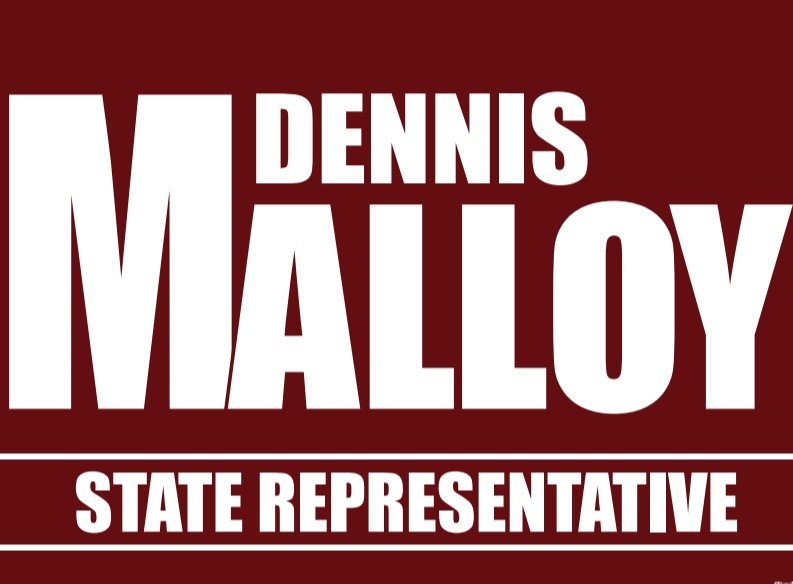Revolutionary war hero The Marquis de Lafayette visits Greenland on the 200th anniversary of his farewell tour of the United States.
Rye Harbor Business Owners Challenge the PDA
NH is Halting Unchecked PFAS Use
New London District 7 Democrat Karen Ebel and I joined the NH General Court in 2012. She was prime sponsor of HB 1649 and serves as the Democratic Leader Pro Tem and chair of the state Solid Waste Working Group. Rep. Ebel is the author of the following describing her efforts at eliminating PFAS as a health threat to New Hampshire residents.
Construction of Glenn Cove is Underway
Great Bay Stewards Executive Director and State Representative Allison Knab, along with State Representatives Peggy Balboni representing Greenland, Rye and North Hampton and Dennis Malloy representing Greenland and Rye at the Glenn Cove groundbreaking ceremony on July 30, 2024.
The Glenn Cove Project is officially underway in Greenland, NH. Just off of Newington Road on Emery Lane 70 people gathered for a formal introduction of the new Glenn Cove recreation and research area on July 30, 2024. This will include free public access along the shores of Great Bay, renovation of the property’s historic farm and a picnic pavilion for public use. The site will allow access for water quality and saltmarsh research and monitoring, climate change and sea level rise work and fisheries and wildlife management.
The project abuts four NH Fish and Game-owned parcels that protect about 130 acres of land and 4,000 feet of frontage on the eastern shore of Great Bay, as well as the 154-acre Great Bay Farm recently put into conservation by the town of Greenland and Southeast Land Trust
The entire area has been designated for use by the Great Bay National Estuarine Research Reserve, which is working to restore and renovate it to open for public use.
Great Bay Stewards hosted the event on July 30, 2024 at the site.
Outlook for Business Tax Collections
How to File a Bill in the NH House
NH to Receive $72 Million for PFAS Mitigation
What We Accomplished This Week In The NH House
Divisive Concept's Ban Ruled Unconstitutional
$20 Million Dollars for Rye and North Hampton Seawall Repair
Rye police chief Walsh, NH Department of Transportation Commissioner Bill Cass, Congressman Chris Pappas, State Senator Deb Altschiller, U.S. Senators Jean Shaheen and Maggie Hassan, and Rye/Greenland State Representatives Jaci Grote and Dennis Malloy were at Rye Harbor State Park Monday April 22, 2024 to learn about the $20 million PROTECT grant that will shore-up the seawalls from North Hampton to Rye.
The Federal Highway Administration PROTECT grant is allocated directly to the state Department of Transportation to repair and reinforce the seawalls along a three mile stretch between North Hampton and Rye, two local communities battered by the back-to-back January coastal storms and flooding events that resulted in widespread damage to public and personal property.
The grant for reconstruction efforts in the Seacoast is part of the Federal Highway Administration’s $829.6 million earmarking for 80 projects throughout 37 states, the District of Columbia and the U.S. Virgin Islands.
In announcing the grant, Shailen Bhatt, administrator of the Federal Highway said protection against storms that was great for decades, is not standing up to the 21st-century climate, which is emblematic of our infrastructure system. The system that was designed in the 20th century isn’t able to handle the precipitation rates and the storm rates that we’re seeing on an increasing basis. Whether it’s New Hampshire, Texas, Georgia, fires in Hawaii (or) flooding in Tennessee, we’re just seeing more and more of these climate-related events.
Work on the project will be completed through five construction contracts, according to the New Hampshire Department of Transportation. Fourteen revetment stone barriers and sea walls will be tended to over a multi-year period.
As part of the project, one of the first priorities is reconstructing revetment (seawall) sections between the North Hampton and Rye town line near Fox Hill Point and Rye Ledge, a roughly 0.6-mile span.
The coastal resiliency grant award comes as local officials throughout Rockingham County are set to receive a separate batch of money after New Hampshire’s disaster declaration for the January storms and flooding was approved.
Congressman Pappas agreed with Administrator Bhatt saying that we seeing the impacts on our built infrastructure, on properties up and down the Seacoast of New Hampshire. We can’t just be satisfied with the fact that we might repair the damage as the infrastructure used to exist and feel like we’re prepared for the future. That’s not a recipe for success. We have to be building for the future.
Earlier in the day NH Governor Chris Sununu announced a $3 million FEMA grant from the agency’s Hazard Mitigation Grant Program which gives money to municipalities to help their communities rebuild and prevent future disaster losses.


